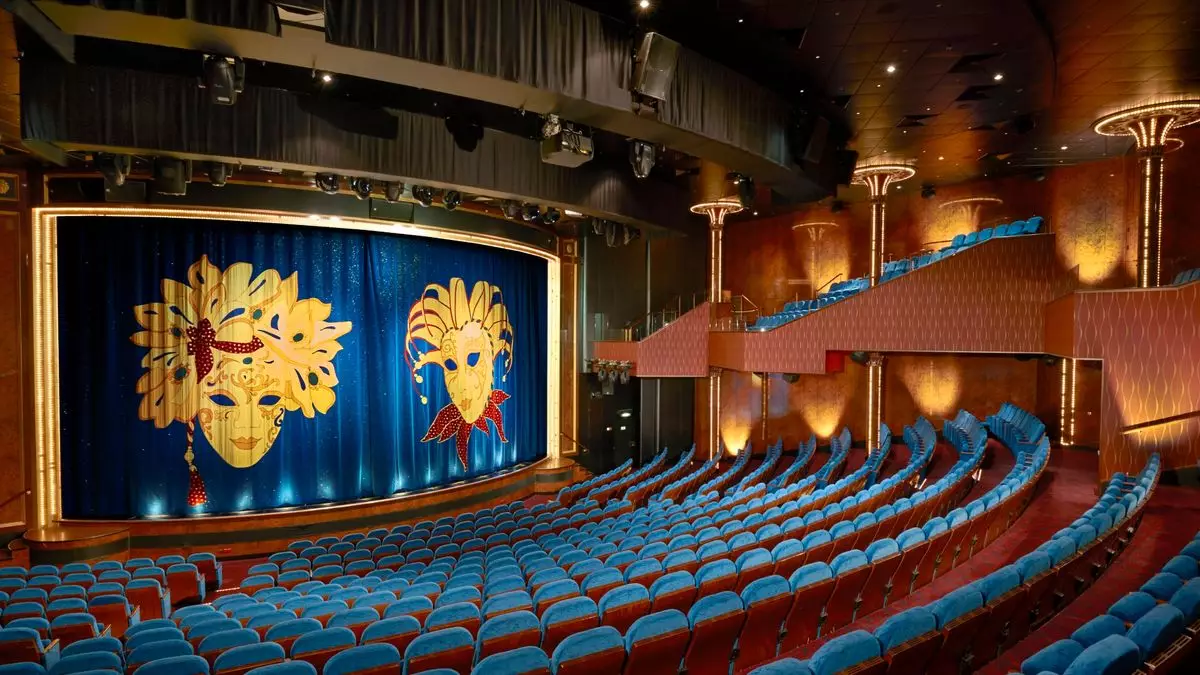In a noteworthy pivot from its previous entertainment strategy, Norwegian Cruise Line (NCL) has revamped its on-board offerings, eliminating Broadway-style productions in favor of more compact and engaging shows. This change, as articulated by NCL Holdings CEO Harry Sommer at the recent CruiseWorld conference, reflects a broader ethos centered on enhancing guest experiences while mitigating logistical challenges associated with complex theatrical performances.
The departure from Broadway adaptations, such as “The Donna Summer Musical,” sheds light on the complexities and pitfalls of producing theatrical shows at sea. During an interview, Sommer highlighted that the intricate nature of these performances often required specialized staff, such as a “full-time wig master.” When this individual fell ill during a cruise, the effects rippled throughout the entire production, prompting NCL to rethink its approach to entertainment. The ability of the crew to navigate unexpected circumstances became a paramount concern; hence, the decision to simplify performances was not merely a matter of preference but also a logistical necessity. Notably, the functional integrity of a show should not hinge solely on a single cast member, a reality that has become increasingly apparent to cruise line operators.
Interestingly, the decision to shift away from more extensive Broadway shows was influenced by passenger feedback. According to Sommer, surveys indicated that guests expressed a preference for shorter, livelier performances developed in-house by NCL. This insight brings into question the conventional wisdom that equates lavish Broadway productions with superior entertainment value. The evidence is staggering and cannot be overlooked—NCL’s highest-rated shows were those that required less financial investment yet resonated more with guests. This parallelism between costs and customer satisfaction has sparked a broader discourse within the cruise industry, challenging longstanding assumptions about the relationship between production scale and guest enjoyment.
Comparative Analyses of Entertainment Formats
To contextualize this shift, one can draw comparisons with productions on competing cruise lines. For instance, my own experience watching “We Will Rock You” on a Royal Caribbean ship brought to light the tension between high production values and audience engagement. While the musical’s score—rich with Queen’s classic songs—was engaging, the overall performance felt prolonged, detracting from its appeal. The preference for shorter formats emerges as a common theme among cruise-goers, likely influenced by their desire for diverse onboard activities that extend beyond just theater.
Sommer’s assertions resonate with many who seek a holistic cruise experience. Passengers often prefer evenings that allow them to enjoy various entertainment options, such as a lively casino or vibrant social spaces, rather than being confined to long theatrical performances. Not only does this approach reflect an understanding of guest priorities, but it also inspires creativity among performers who are tasked with crafting engaging shows that can thrive within tighter time constraints.
The Future of NCL Entertainment
While NCL has announced the discontinuation of several Broadway-style performances, it has not entirely abandoned such offerings. Recent productions like “Beetlejuice” onboard the Norwegian Viva still maintain a semblance of traditional theater, albeit in a more concise format. The company’s willingness to experiment with this model reflects an ongoing assessment of its entertainment value against established guest satisfaction metrics.
In the realm of cruising, where guest experience is pivotal, the ability to pivot swiftly based on feedback can prove invaluable. The case of “Jersey Boys” on the Norwegian Bliss serves as an exemplar; its continuation suggests it has managed to strike the right balance between classic entertainment and guest preference.
Norwegian Cruise Line’s recent entertainment overhaul illustrates a pragmatic approach to enhancing guest experiences in the hospitality sector. By adapting to passenger preferences and operational constraints, NCL has set a precedent for innovation that other cruise lines may follow. The focus on creating joyful, accessible, and participatory experiences reflects an essential evolution in the cruise experience landscape, underscoring that entertainment’s effectiveness lies in its ability to resonate with its audience. Not merely a business decision, this shift invites ongoing dialogue within the industry about how best to entertain in ever-changing environments.


Leave a Reply